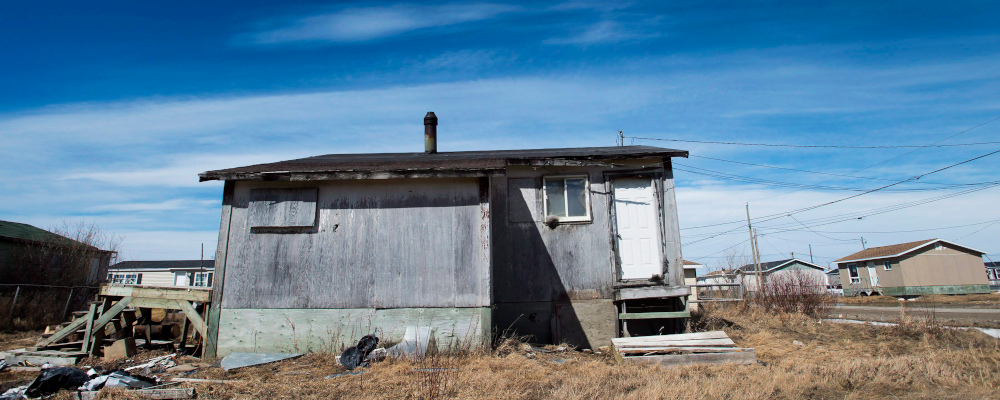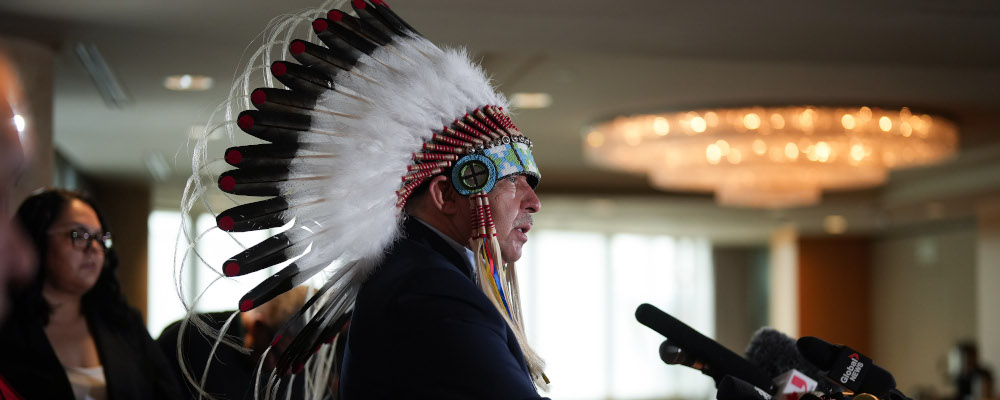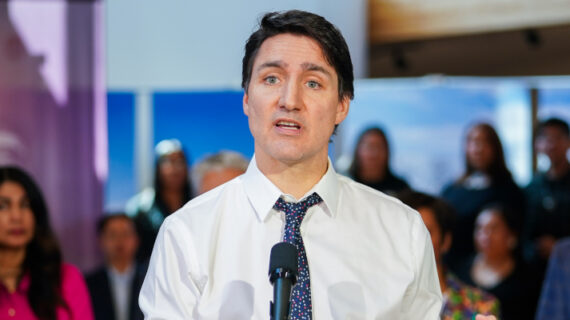Growing up I often heard about the challenges with chief and council leadership. It’s not difficult to find stories on social media, including countless TikToks shared by First Nations people, about leadership problems. As a First Nations person with a keen interest in politics, I’ve always admired good leadership when I saw it. Leaders like Chief Derek Epp, Chief David Jimmie, Chief Clarence Louie, and Chief Willie Sellars stood out to me as excellent examples of true community leaders. Sadly they are the exception rather than the rule.
My upbringing has been shaped by my single mother born with fetal alcohol syndrome disorder, a consequence of her mother using alcohol to cope with the traumas of St. Mary’s Indian Residential School in Northern Ontario. This personal history has given me a deep understanding of what “intergenerational trauma” actually means. Growing up, we lived near the poverty line, often running out of money a week before the next social assistance cheque. School was tough too. Teachers doubted my potential, suggesting to my mother during parent-teacher conferences that I was more likely to drop out and join a gang than graduate.
However, I used these challenges as motivation. I graduated from the University of the Fraser Valley with a degree in criminology and criminal justice. I then worked to help Indigenous people navigate the criminal justice system and earned a law degree from the Peter A. Allard School of Law at the University of British Columbia. Not long after that, I ran for a position in chief and council for my community in British Columbia at 26 years of age. Today I am a councillor for Chawathil First Nation, a place my family has called home since before Canada became a country.

Effective governance is critical for our communities, where overcoming challenges like addiction, poverty, housing shortages, crime, and unemployment hinges on strong leadership and administrative integrity. Yet, many First Nation communities face serious issues of corruption, nepotism, and collusion.
In 2022, the chief of Westbank First Nation stepped down over corruption concerns within his band. At Seabird Island First Nation, a finance department employee was sent to jail after embezzling $2.3 million between 2005 and 2013. In Peters First Nation, an investigation into leadership revealed nepotism and prompted an RCMP inquiry into the misappropriation of funds. Similarly, concerns arose in Frog Lake First Nation when $120 million in net assets went missing.
First Nation struggles are complex, with roots in historical injustices. Yet, as leaders, we must also look within and recognize our role. We are not just caretakers of the land but agents of change, tasked with the sacred duty of uplifting our people. Unfortunately, the silence around the fulfillment of our own electoral promises is deafening. As leaders, we should be starting conversations about our progress and actively seeking feedback.
Our Indigenous community members work hard to provide for their families. They deserve leaders who are relentless in their pursuit of providing better education, community supports, and job opportunities. They need us to form alliances that reflect our values. They need us to secure funding for crucial infrastructure like housing.
The often sad realities of chief and council
I’ve now served as a council member for my community Chawathil First Nation (about 10 minutes outside of Hope, B.C.) for more than 18 months, and I’ve seen firsthand the transformative power of accountable governance. Chief and council are often compared to a municipal government’s mayor and councillors. Similarly, we are responsible for ensuring the management of our administration office, sitting on various subcommittees, representing the community in forums and meetings, and advocating for change. But these First Nation leaders are unique because we are also responsible for managing reserve land, housing projects, and economic development opportunities, as well as meetings about our traditional territory (land that is not on the reserve but is where our nation was traditionally located). We’re also tasked with encouraging our members to pursue higher education, find gainful employment, and then bring that knowledge and experience back to the community.
When I campaigned for council, there were no candidate forums, debates, or policy discussions; leadership choices were often reduced to familiar surnames on a ballot. I chose to run on a platform of increased economic development and a commitment to raise more money for community services. I hosted two all-candidate meetings with the one other council member who agreed to attend. I spoke with our local reporter and explained my vision of a bid for chief. While I was unsuccessful in my run for chief, losing by only 18 votes, I was elected as a council member. Without a clear presentation of goals and platforms, how can Indigenous community members make informed decisions about their leadership?
The role a chief or council member can play in our communities is significant. Prior to my arrival all 89 of our homes had significant health and safety issues. There was overcrowding and no plan for home repairs. There wasn’t even a housing manager or targets for new developments.
Once I took on the housing portfolio we turned a corner. To date, we’ve appointed a housing manager, completed extensive repairs in 20 units, and are in the process of renovating another 15 in the next six months. It is my goal that by the end of my term in September 2025, every home in our community will be repaired. We’ve laid out a five-year strategy and are gearing up to apply for 30 new housing units.

Journalists must hold our elected officials to account
The role of the media is vital in our communities. Investigative journalism must celebrate our wins, but also scrutinize our governance and constructively critique our failures. It is a catalyst for discussion and accountability. I’ve experienced the benefits of such scrutiny and understand its power to spark progress.
We all know the critical role journalism plays in local government. In one well-known Brookings study, researchers found newspaper closures had a direct causal impact on local government public finance. A loss of local newspapers meant a loss of accountability. The study showed that when newspapers folded, it led to an increase in government waste, corruption, and less informed voters. With 630 First Nation communities in Canada and journalism on the decline, one wonders how many investigative stories are simply being missed.
Canadian journalism is facing major financial hurdles. But it is crucial for the pursuit of reconciliation and addressing poverty in vulnerable communities. Supporting organizations such as IndigiNews, Overstory Media Group, and local journalists with increased funding is essential for covering local stories. We also need entities like the Assembly of First Nations to push for enhanced financial backing for these and other organizations dedicated to local investigative journalism, including coverage of chief and council meetings.
Ensuring a brighter future
Our communities grapple with significant challenges, including high rates of poverty, crime, and addiction, alongside lower levels of educational attainment and employment.
In 2019, a study showed that 53 percent of First Nation children on reserve live in poverty. A 2020 report found that crime in Indigenous communities was six times higher than in non-Indigenous communities. Violent crime was almost nine times higher. Sixty-eight percent of non-Indigenous people have completed postsecondary education. But only 45.3 percent of First Nations people have.
First Nation communities are responsible for their own infrastructure like housing, water and sewage systems, and infrastructure. While the chief and council can’t single-handedly fix these issues, they can advocate for increased funding for educational opportunities, addiction services, and cultural support. Further, they can meet with stakeholders from Indigenous Services Canada, the Canadian Mortgage and Housing Corporation, and others to develop a plan to improve conditions.
I am certain First Nation communities are being held back from succeeding by leaders without a clear vision for improvement. This stagnation must be brought to light. As a community, we need to understand our leaders’ plans—or lack thereof—and hold them accountable.
I hear from members of other First Nation communities in my region who say their political leaders are not doing enough to address staffing issues or improve housing conditions. They add that some leaders are merely acting in their family’s own best interest. First Nations’ socio-economic success stories are celebrated because they are still the exception rather than the norm.
An Indigenous cultural shift is overdue. We need an environment where media scrutiny is routine, where community engagement is vigorous, and where stakeholders are held accountable. Leaders should welcome this shift, as it strengthens our strategies and reinforces our commitment.
I envision a culture of accountability, where leaders don’t just lead but also answer to the community. Where success is not just celebrated but also measured. Where every community member feels empowered to question and demand answers.
Increased accountability and community engagement can lay the groundwork for First Nation communities to share their wisdom and culture, enriching Canadian society.
As I advocate for this change, I extend an invitation to journalists, community members, and my fellow leaders to join in this newfound commitment to transparency and progress. It is crucial to remember that chief and council meetings are public forums. Despite some exceptions, there is ample opportunity for increased journalistic presence to shed light on decision-making and accountability.
We must acknowledge our vulnerabilities and commit to identifying and improving our weakest links. Only by holding our leaders accountable for their actions—or inactions—can we enact meaningful progress.
Together, let’s build a future where every First Nation community flourishes, guided by values of transparency, accountability, and continued progress.




